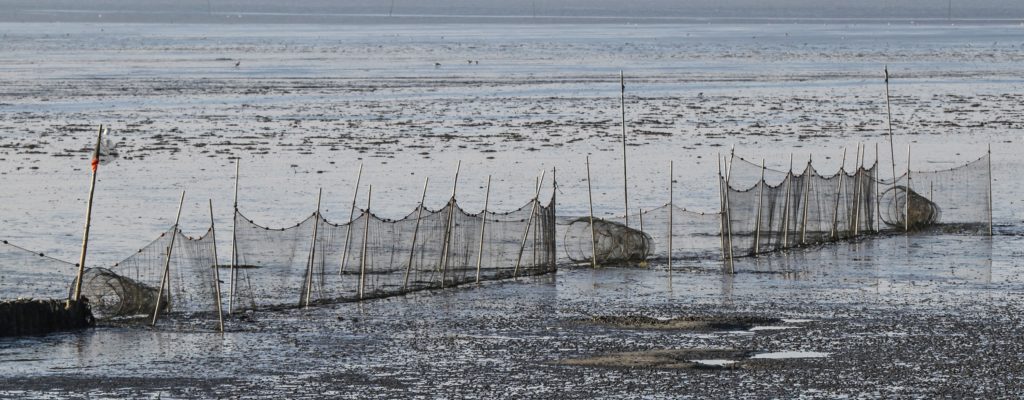El Parlamento Europeo apoya a la propuesta del Partido de los Animales contra la sobrepesca en el Mar del Norte
El jueves 14 de septiembre, el parlamento Europeo aprobó un conjunto de medidas de protección para combatir la sobrepesca en el Mar del Norte, apoyando con esto a la propuesta del Partido por los
Animales para evitar que la pesca supere el nivel de rendimiento máximo sostenible. Esta medida entraría en vigor a partir del año que entra si los 28 países de la UE votan a favor.

Una red de parada
“Es fundamental mantener el nivel de rendimiento máximo sostenible (RMS) para determinar el límite absoluto de la cuota nacional asignada para la pesca; el término ‘máximo’ no tiene otra interpretación que su significado literal,” dice la europarlamentaria Anja Hazekamp.
Hazekamp indica que aunque se respete el límite del RMS para la pesca, las poblaciones de peces de cualquier forma se siguen viendo afectadas. “Los planes pesqueros no se deberían enfocar solamente en el resultado máximo a beneficio de los humanos. La recuperación y el mantenimiento de los ecosistemas marinos deberían ser los puntos clave en estos planes.”
Por lo mismo, la europarlamentaria está molesta con los partidos del Parlamento Europeo que tratan de posponer la implementación del nivel de rendimiento máximo sostenible como límite absoluto.
“En los convenios internacionales se estableció que la sobrepesca en nuestros aguas se debía haber terminado en el 2015. Sin embargo, decidieron posponer esto hasta el año 2020. Ahora que parece que sí se van a aplicar las medidas para bajar el nivel de pesca, algunos partidos temen que haya problemas. No obstante, a largo plazo, a nadie le conviene seguir permitiendo la sobrepesca”, advierte Hazekamp.
Por iniciativa del Partido por los Animales, el jueves también se votó sobre la prohibición de la pesca con redes de parada junto a la orilla del Mar del Norte. Mamíferos como la marsopa común, focas y aves marinos se atoran frecuentemente en las redes, a causa de lo cual sufren una muerte horrible ahogándose. Lamentablemente, la propuesta de prohibir las redes de parada no se aprobó en la votación plenaria. En cambio, las propuestas de implementar restricciones en relación a la pesca recreativa sí fueron aprobadas por el Parlamento Europeo.
On Thursday September 14th , the European Parliament voted in favour for a package of protective measures aimed at reducing overfishing in the North Sea. The Party for the Animals received support for her proposal to never fish above the level of the Maximum Sustainable Yield. This maximum limit will be enforced next year if the 28 EU countries vote in favour.

Fishing net
“The Maximum Sustainable Yield should be maintained as an absolute maximum level when enforcing the national fishing quota; the word ‘maximum’ specifically leaves no room for differences in interpretation, ” says Euro parliamentarian Anja Hazekamp.
Hazekamp points out that even if fishing will commence at the level of the MSY, the strain on fish populations will still remain significant. “Fishing plans should not only be focussed on how mankind can benefit most from the sea. Recovery and conservation of maritime ecosystems should be the primary goal of these kind of plans.”
The Euro parliamentarian therefore also criticises parties in the European Parliament that are trying to stretch the ceiling of the Maximum Sustainable Yield.
“International conventions state that overfishing of our waters should have been discontinued by 2015. This has already been postponed to 2020. Now that fishing effectively has to be reduced, you can see that the parties are getting cold feet. However, if overfishing keeps commencing, no one will be favoured in the long term, ” Hazekamp warns.
Besides this, a vote was raised on the initiative of the Party of the Animals about a ban on standing nets in front of the North Sea shore. Mammals such as porpoises, seals and sea birds often accidently get caught up in the nets, resulting in death by suffocation. The proposal to ban standing nets was rejected in the Plenary vote. However, proposals to take measures aimed at reducing recreational fishing were positively received in the European Parliament.